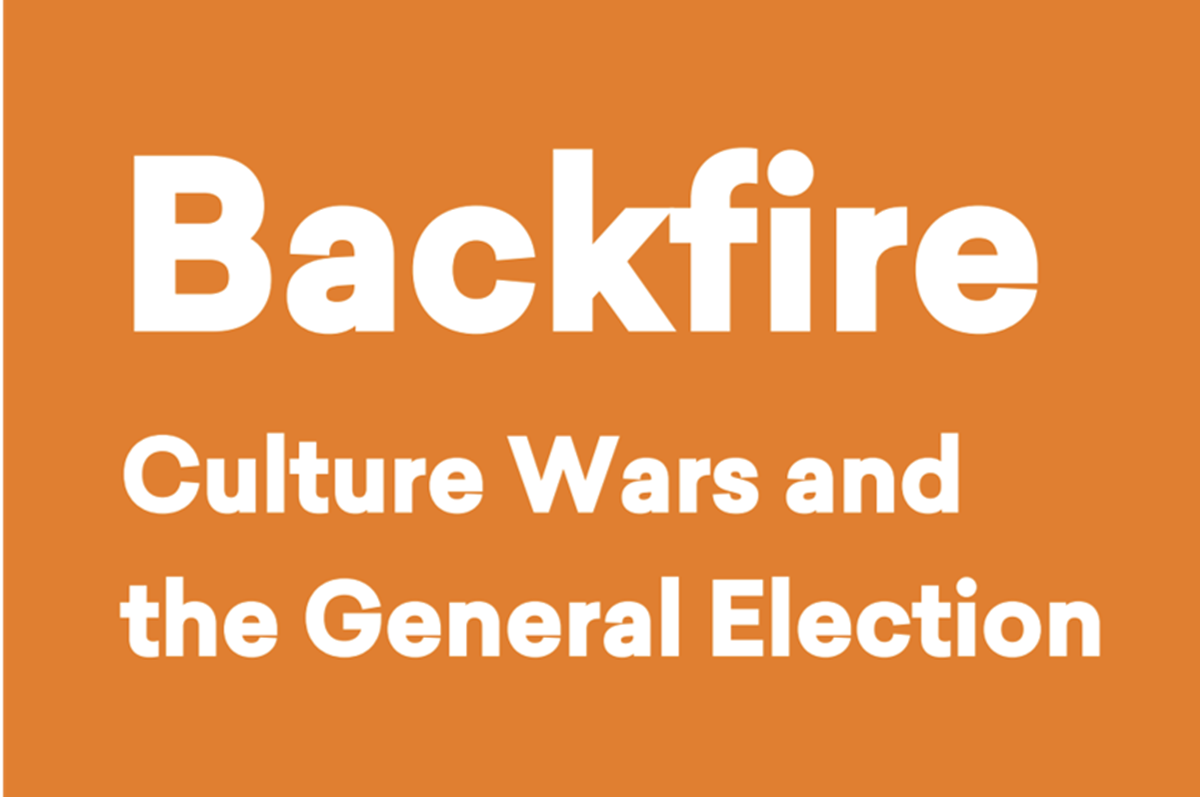What do voters think whenever they hear culture war tactics and narratives being employed by political leaders? How do they react when culture war leaflets come through their letterbox? With a general election looming, More in Common was commissioned by 38 Degrees to understand how ordinary voters think through these questions as the general election looms.
Using a series of public opinion experiments, polling and focus group conversations, the voters’ verdict is clear - they want a campaign focused on their everyday concerns rather than abstract cultural debates that feel far away from the issues that matter most. The briefing paper shows there is a very real risk that using culture wars will backfire electorally.
When political parties play the culture wars campaign card, they are speaking to political activists and their core base, not the general public or undecided voters. Most voters are cynical about politicians' rationale for exploiting cultural issues for political gain, and many see these attempts as inauthentic. Many voters see culture war tactics as a reflection of weakness and desperation, rather than a demonstration of strength.
Understanding the electoral risks of culture war election strategies starts by acknowledging what does and does not constitute a culture war. Culture wars are not heated policy debates – the public expects politicians to have reasoned and passionate debates about major policy issues. Debating gender identity or the future of our immigration system is not engaging in a culture war – the public expect politicians to discuss, scrutinise and address these issues seriously. These debates can also touch on issues that are deeply important to many people – issues of fairness, justice, respect and dignity, and which shape our identity as individuals, as communities and as a nation.
Instead, culture wars emerge when people try to trivialise or weaponise these issues, focusing on imagined or imported problems such as banning drag shows, or renaming infrastructure – and prosecute these debates in ways which are deliberately incendiary and designed to create wedges rather than find solutions. Presenting these debates as a battle of two irreconcilable worldviews doesn’t resonate with voters, nor does it do justice to the actual important issues at stake and rarely moves things forward
The public expect reasoned and passionate debates about major issues affecting the future of this country, rooted in their day-to-day experiences in their lives – they don’t want imagined or imported problems which artificially divide the country in two dominating an election campaign about the future of our country. Labelling everything that people disagree on a ‘culture war’ is equally unhelpful. Instead, the clear message from the public is that they want difficult issues to be discussed in a way that points to solutions and genuinely informs the public. They also want to make sure that the balance of campaigning activity focuses on those issues that most matter to people’s day-to-day lives.
